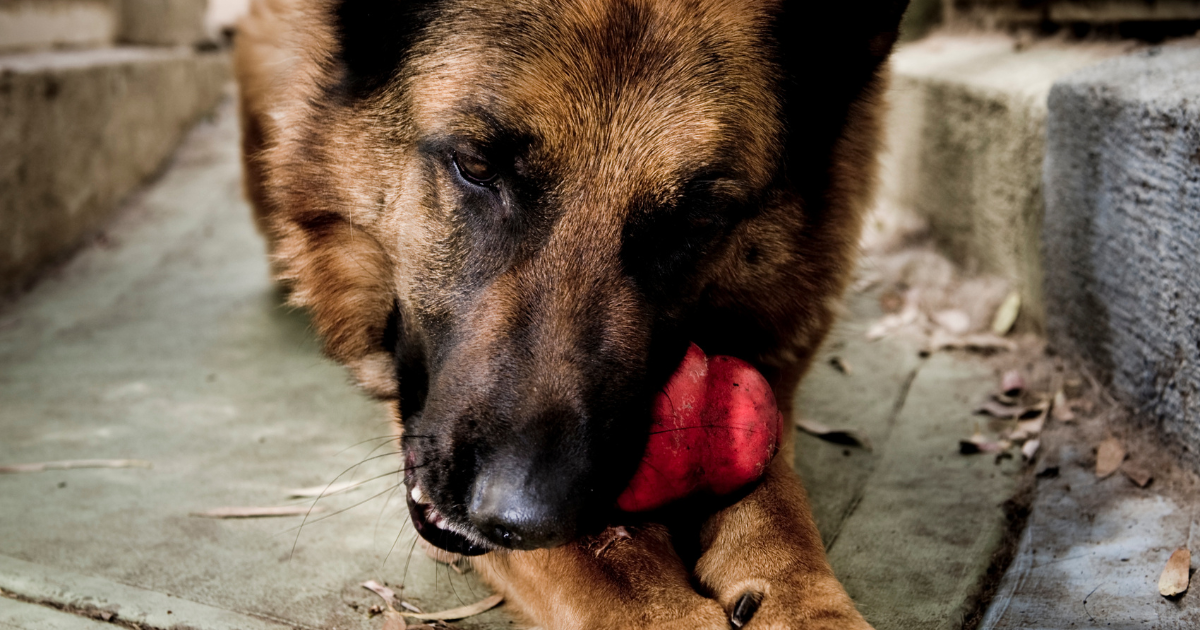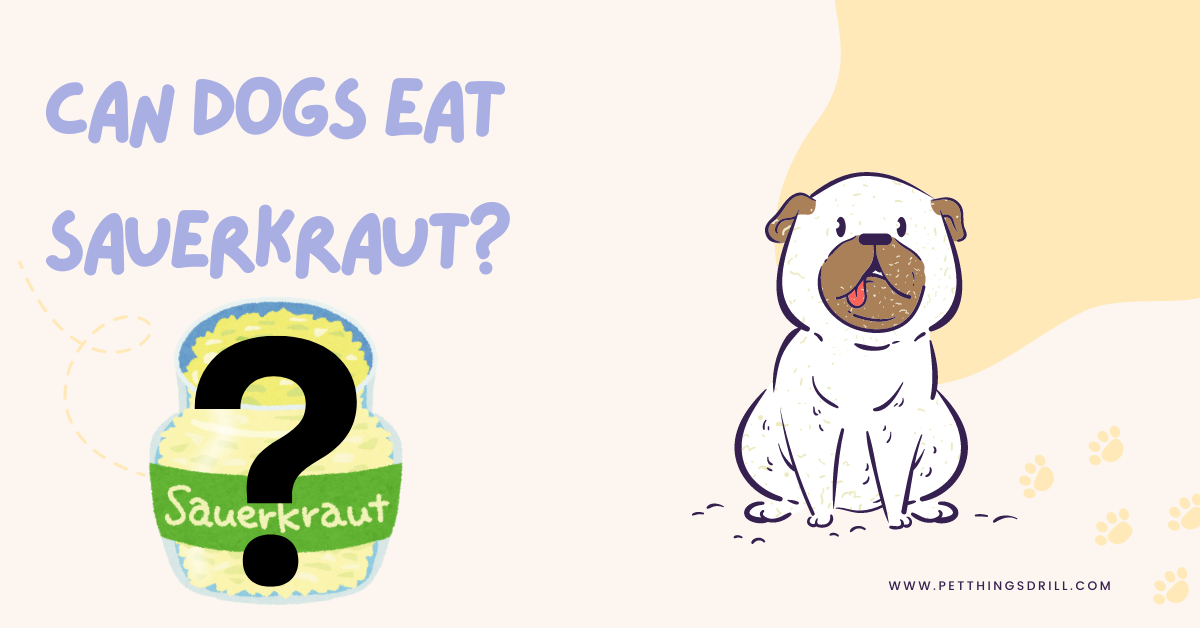

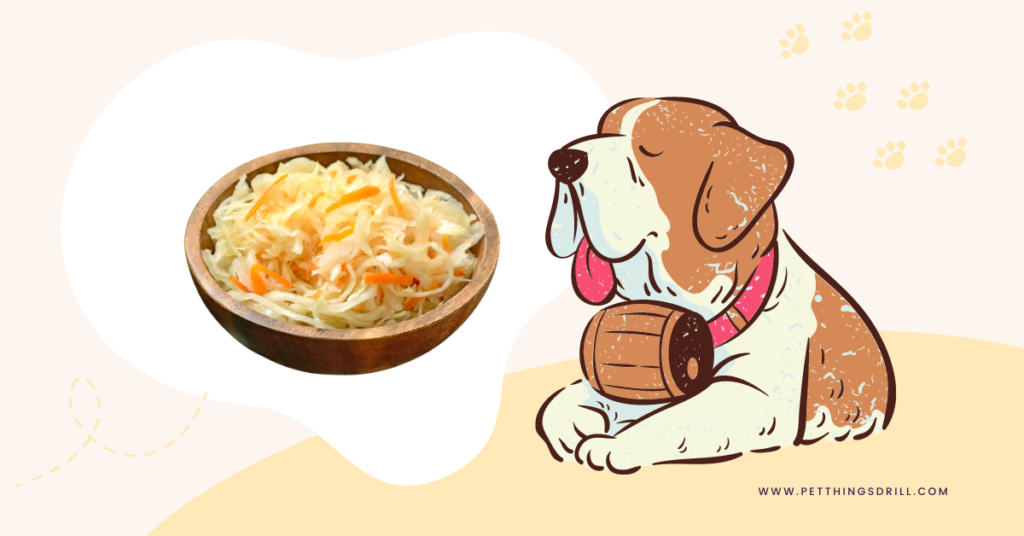
Can dogs eat sauerkraut? Sauerkraut is a delicious yet healthy condiment that is loved by human beings of all ages. Its salty and sour taste and low caloric value make it a perfect snack for human beings. However, the real question stands: can dogs eat sauerkraut, and is it safe if a dog eats sauerkraut by mistake?
What is sauerkraut?
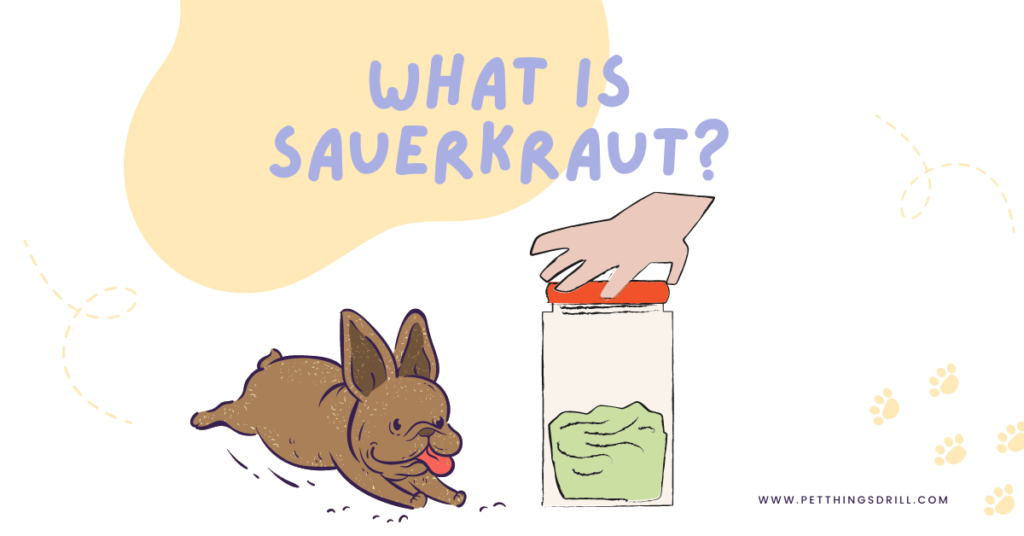
Sauerkraut is a fermented cabbage that is filled with nutrition. The word sauerkraut, although it seems like a German word, the driving origin of this condiment is China. In fact, Chinese Sauerkraut is a condiment that is created when a cabbage is soaked in salt. The sugar in cabbage ferments and turns it into a pickled forum.
Health benefits of sauerkraut:

Following are the health benefits sauerkraut has to offer to humans who consume it.
- Improve digestion.
- Better heart health.
- Boost your immunity.
- Improve Metabolism.
- Enhance brain health.
Can dogs eat sauerkraut?
Yes, dogs can consume sauerkraut in moderation. However, the consumption should be precise and not consumed daily. Just like there are many health benefits, there can be many disadvantages that can cause several health issues.
Can dogs eat pork and sauerkraut?
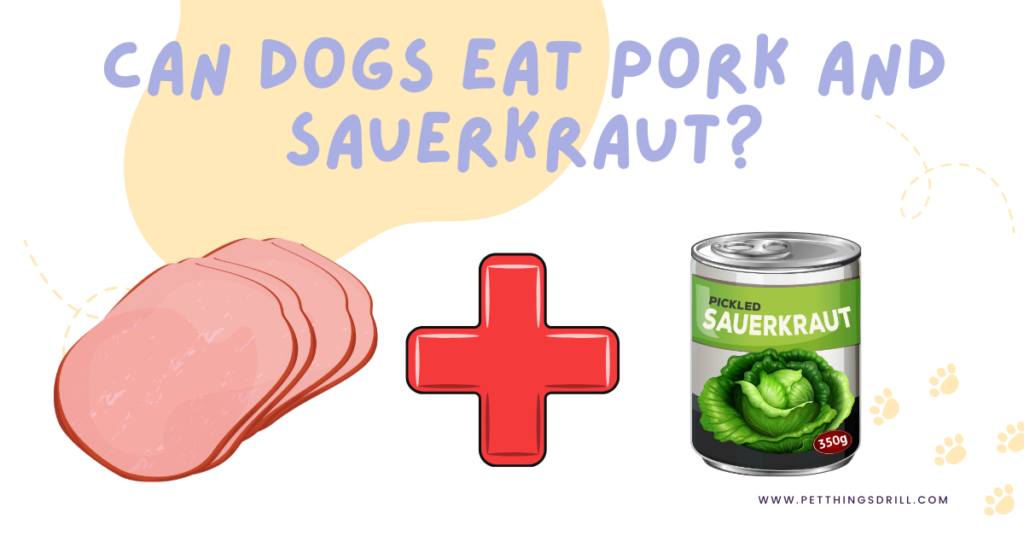
Consuming pork with sauerkraut is completely harmless for the dogs. The combination balances the salt quantity thus making it ideal for canines of all breeds and ages. If you are introducing pork to the dogs, you must provide it in smaller quantities.
Can dogs eat canned sauerkraut?
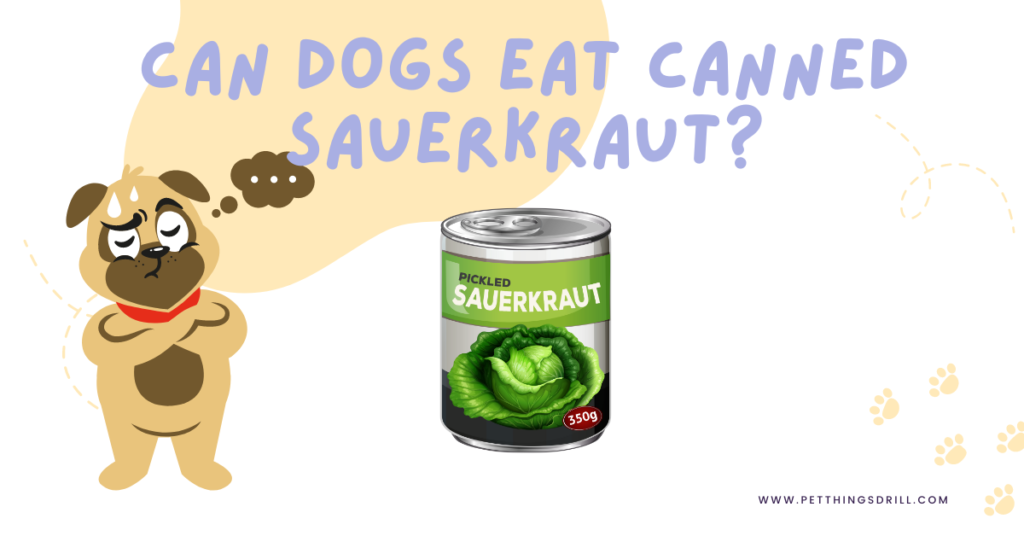
Canned sauerkraut just like other canned foods contains deadly chemicals that can make your dog extremely sick. Therefore, I do not suggest any of my readers to offer your hound the canned form of sauerkraut.
Can dogs eat fresh sauerkraut?
Fresh sauerkraut is a much better condiment option for both dogs and human beings. The presence of fresh ingredients makes it ideal for consumption and causes fewer adverse reactions.
Nutritional value of Sauerkraut:
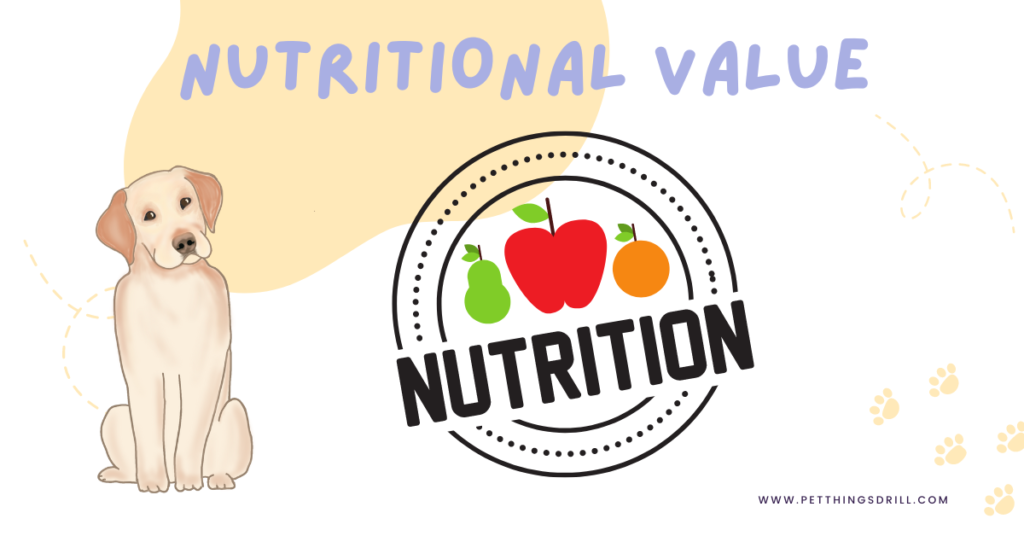
Sauerkraut is loaded with essential vitamins and minerals. Here are the nutritional benefits of sauerkraut for a dog:
Fiber:
Fiber is ideal for gut health. It clears chronic constipation or diarrhea and promotes healthy gut bacteria.
Vitamin K:
Enhances the brain and neuron function in dogs. Sauerkraut is a perfect source of vitamin K, thus being the ideal source for it.
Vitamin C:
It boosts the immune system and enhances the generation of red blood cells along with other immunity-boosting cells.
Vitamin A:
Eating sauerkraut ensures the dog gets a decent amount of Vitamin A. Vitamin A helps enhance the skin, fur, and eye health of the canine. It also helps in the growth of new cells.
Probiotics:
Sauerkraut is an excellent source of gut bacteria promoting healthy gut bacteria. Sauerkraut contains lactobacillus and lactic acid, both the perfect source of prebiotics,
Iron:
Iron is an essential component of healthy blood count in dogs. Moreover, it also regulates the metabolism:
Calcium:
Calcium strengthens the teeth and bones of the canine. Additionally, calcium improves proper muscle functioning in older dogs.
Antioxidants:
Sauerkraut is an incredible source of antioxidants. Antioxidants fight against toxins or oxidants that accumulate in the bloodstream and initiate several diseases. Moreover, it can also incredibly reduce organ functions.
How much is too much?
Sauerkraut is high in sodium; therefore, offering the condiment in bulk can cause permanent damage to the vital organ. Fermented foods can also lead to painful gas in canines. Although beneficial, the introduction of sauerkraut can be very challenging. Start offering the condiment in smaller amounts and adjust the amount gradually. If the small amount causes gas, consult your vet immediately. Store-bought sauerkraut is extremely dangerous for your canine’s health as it contains ingredients like garlic, onion, carraway, and fennel seeds, each of which is fatal for dogs. All of these ingredients cause vomiting, diarrhoea, and heart and kidney issues.
What are other sources of probiotics besides Sauerkraut?
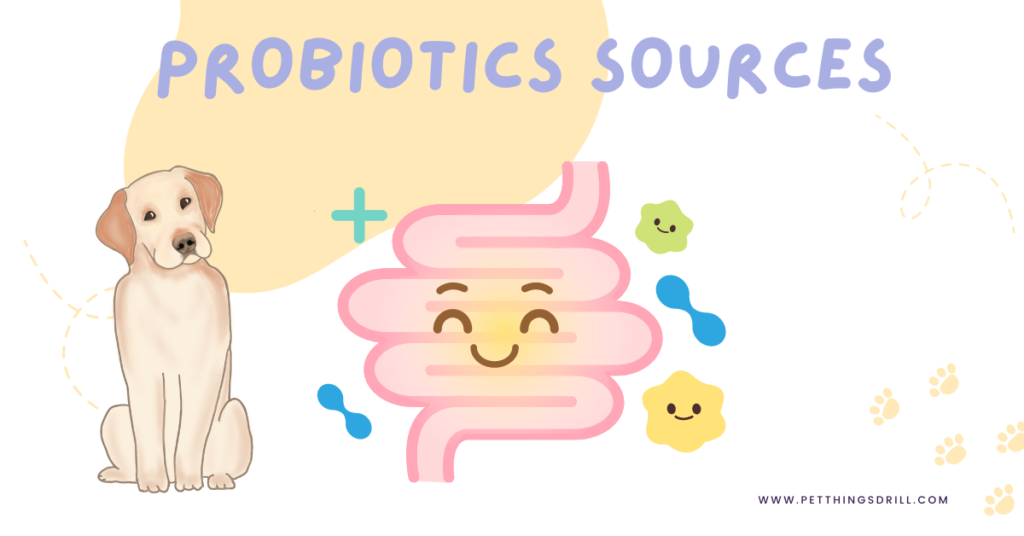
If you are scared of offering sauerkraut or if your dog gets an allergic reaction from consuming sauerkraut, there are many other ways you can provide probiotics with.
Plain Yoghurt:
Plain yogurt is an excellent source of pre and probiotics. Moreover, it is also a perfect way to keep the gut of your dog’s stomach. From curing constipation/diarrhea to impacting the mood, yogurt is a powerful food for canines of all ages. Moreover, yogurt is also a great snack or treat for dogs that maintain the canine’s weight while tackling the craving efficiently.
Store Bought Probiotics:
If your dog doesn’t like the taste of sauerkraut yet you still want to add probiotics into your dog’s diet, the best way is through store-bought probiotics. Probiotics come in different forms. You can always ask the vet to prescribe probiotics that you can further accumulate in the canine food. Moreover, you can also find many varieties of dog food or kibble types available in the market that contain a decent amount of probiotics and other nutrition.
Fermented vege:
Bananas are a yummy fruit item that dogs love. A well-ripened banana is made of probiotics, making it a perfect resource. You can offer bananas in different ways, like treats or shakes. Or as a cold treat. Moreover, bananas are an excellent dietary fibre that keeps the gut healthy.
Conclusion
A good diet and healthy living can positively impact a dog’s life. In this article, we have answered a question many dog owners ask: can dogs eat sauerkraut? The answer is yes; sauerkraut in moderation is not harmful. Read interesting aspects attached to a canine’s consumption of sauerkraut here and make informed dietary decisions for dogs.

